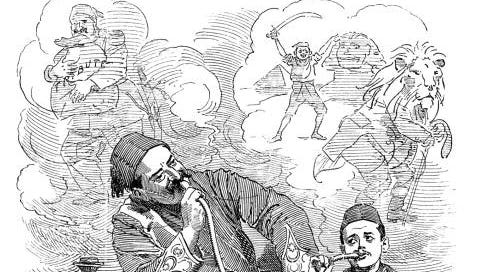I met a drug dealer once, but hold off on that for now. Here’s an excited review of God’s Shadow, a trade book by a Yale historian on the global reach of the Ottoman Empire. And here’s a review by Cornell Fleischer, history prof at Chicago, and others, saying God’s Shadow literally makes things up.1
I think this issue goes beyond one bad apple. Kenneth Pomeranz wrote a famous book, The Great Divergence, about why the industrial revolution started in Western Europe not elsewhere. His basic argument was that until the 18th century, China and Europe looked very similar. Then Europe had the good luck to have coal. In essence, the Western takeover was a fluke.
I don’t know that anyone has called Pomeranz a bullshitter. But two economic historians wrote an article arguing that China was only as rich as Italy in the 18th century, not as rich as Europe on average, so that “by the eighteenth century the more economically advanced parts of Asia should be seen as on the same level as the more peripheral, rather than the most developed, parts of Europe.”
That just seems common sense, no? From my schoolboy knowledge of history, I would think that in the eighteenth century, Italy was poor; and China was poor; and Britain was sending China the Macartney embassy, with gifts of telescopes and a planetarium. Sure, common sense and schoolboy history can be wrong, but if they turn out to be right, you wonder why that angle wasn’t checked in the first place.
There are several aspects to this. First, the social sciences serve different markets, and the market for history contains a high demand for guff. Nationalists from Turkey, China and other authoritarian risers demand guff about their countries. You can be a successful historian by writing best-selling books. They don’t have to be true!
Second, Western populations are too badly educated to spot guff. I met a drug dealer once on the train, back from doing County Lines business. He was a smart guy, very uneducated but curious, and his idea of history was “so, until the sixties, kings and queens ran everything, right?” That’s ridiculous, but if you squint hard enough, you can see it kind of, sort of making sense. Cute factoid: modern computers measure time in seconds after midnight on New Year’s Eve 1970, sometimes known as The Epoch. Contemporary intellectuals sometimes seem to think this way, dividing the world into pre-1960s barbarism, and the subsequent growth of civilization. Our mass education systems often leave a vacuum which can be filled by such simplistic stuff. The end result is that, for example, many actual grown-ups think the West got rich by plundering its colonies — a story which gets causality backwards.
Lastly, the problem is with history as a whole, not only global history. A social scientist, caught throwing away data to prove a point, would lose his job and never publish again.2 Historians who cut sentences in half to prove their point don't even lose their Pulitzers.
If you liked this piece, then I would love you to do three things:
Subscribe to this newsletter. It’s free and spam-free.
Share Wyclif’s Dust on social media, or forward it via email. By telling your friends and/or followers, you’ll be doing me a huge favour.
Read about the book I’m writing. It’s called Wyclif’s Dust, too. You can download a sample chapter.
Fleischer et al. are wrong to be dismissive of the Great Man theory of history, by the way. Common sense suggests that historically important individuals are, well, historically important, and here’s a nice paper with the evidence.
For example, this happened to Diederike Stapel and Michael Lacour.




> Historians who cut sentences in half to prove their point don't even lose their Pulitzers.
Your linked post doesn't mention any Pulitzers. The book I assume you're referring to was a finalist for one award I'd heard of, and won another I hadn't:
https://en.wikipedia.org/wiki/Democracy_in_Chains#Accolades